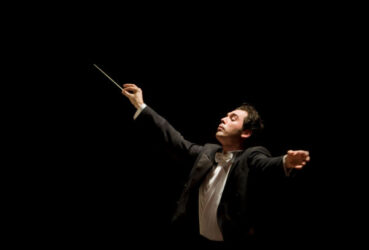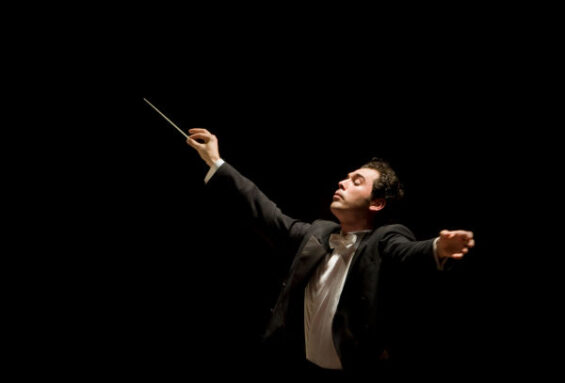 United Kingdom Prokofiev, Rachmaninoff: Daniel Lozakovich (violin), Philharmonia Orchestra / Tugan Sokhiev (conductor). Royal Festival Hall, London, 20.2.2025. (MBr)
United Kingdom Prokofiev, Rachmaninoff: Daniel Lozakovich (violin), Philharmonia Orchestra / Tugan Sokhiev (conductor). Royal Festival Hall, London, 20.2.2025. (MBr)

Prokofiev – Violin Concerto No.2 in G minor, Op.63
Rachmaninoff – Symphony No.2 in E minor, Op.27
Identical concert and soloist – different orchestra and conductor, albeit a couple of years apart; when it comes to Prokofiev and Rachmaninoff the imagination of concert programmers rarely stretches beyond the inevitable (review here). How nice it would have been to have had a soloist in Prokofiev’s First Violin Concerto, and a conductor in Rachmaninoff’s First Symphony for a change. It’s the quality of the performance you hear that’s important, however, and here quality was much in evidence.
I have always rather warmed to Daniel Lozakovich as a violinist – something which apparently cannot be said of another writer on these pages who took a more patronising view of him. I tend to find him an aristocratic sounding player – rather in the Nathan Milstein mould: his London Philharmonic Orchestra\ performance of Prokofiev’s Second a few years ago was, to me, elegant, rich and rather intuitively romantic, especially in the central movement of the work. He is not a player, I think, to overplay the virtuosity of this concerto; rather, he looks deeper within it for individual phrases and ideas to nurture and highlight; sometimes, however, his beauty of tone, so clear and powerful, can seem at odds with the grainier, spikier parts of the work.
A couple of years ago this all seemed slightly more misdirected and disconnected than this performance with the Philharmonia. Why? An element of maturity probably; of living with the concerto for slightly longer almost certainly, too. There was more subtlety to the solo opening, deeper tone, and certainly a greater element of self-awareness – but it was absolutely gripping as well. The folk song melody is actually rather simple and yet Lozakovich gave it unusual grandeur and space, something which was almost at odds with the quicksilver nimbleness of the passagework that followed. His violin would occasionally soar almost elusively above the orchestra; at other times, with the return of the original theme, it would flirt with a choppiness that was masked in satire.
There was considerable beauty to the second movement, one that is beguilingly simple and yet allows the soloist much leeway. Some of the bowing was cleaner than I remember it from the LPO performance – not least because Tugan Sokhiev was exacting in how disciplined he kept the Philharmonia’s pizzicato passagework so Lozakowich’s playing stood out like a Grecian marble frieze. Rhythms were as precise as clock hands, too, our soloist a little more menacing when the orchestra itself played in the lower range.
The finale was superb – in proper ¾ time, a tad macabre, with its dark fantasy entirely restless. This was no waltz, however, rather a spiky satire of one. Virtuosity was a given here, effortless and ultimately sweepingly Romantic (even ecstatic) in the Lozakowich way. The encore, an extremely generous one, Eugene Ysaÿe’s Sonata No.3 (Ballade in D minor) was just superlative, an incandescent performance of aristocratic tone, harmonic richness and precision.

Despite his considerable gifts as a conductor, Tugan Sokhiev has always somewhat frustrated me. Sokhiev has much in common with Yevgeny Svetlanov – even down to their very Russian habit of either cutting works (like Tchaikovsky’s Manfred Symphony), or, in the case of Rachmaninoff’s Second Symphony thinking the first movement ends better on timpani rather than double basses. But, taking this aside, what he shares with Svetlanov is an enormous expressive range, an ability to get a big sound from an orchestra and one to sustain a long line in Romantic symphonies: this was Rachmaninoff in its most glorious and tumultuous form, and he got superb playing from the Philharmonia Orchestra in doing so.
If this was certainly an opulent performance at times, and it played to the warmth of tone and beauty of phrasing of which this orchestra is so capable, most notably in the woodwind, then it was not one which ached to be monumental. Any comparison with a Svetlanov performance which moored itself excessively into the hour-plus territory was eschewed here – as was a repeat in the first movement. Sokhiev didn’t bother with the score (although he had one) – instead deep-diving into the orchestra at times to pull out phrases from the cellos or woodwind.
The long opening was dark – its debt to Tchaikovsky’s Fifth as obvious as could be – with rich lower strings. Woodwind – flutes and clarinets in the reprise of the second subject, for example – were superlative. This was a movement where the long lines were largely held together, except where they were supposed to do the opposite where Sokhiev pushed the Philharmonia into playing with exquisite detail: a bass clarinet that suddenly replayed the motto of the first theme, for example, stood out in sharp relief. The second movement was fleet, the Dies Irae them so clearly evoked. Again, it was the cellos and double basses which provided the bedrock of the performance – sumptuous, plangent and deep.
The Adagio had one of the most gorgeous clarinet solos (Mark van de Wiel) I have heard for many years. This sounded more spacious than usual – but was considerably more affecting because of it. Avoiding sentimentality, I might have wished for a slightly deeper bass sound at the climax after the solo – but this lacked for nothing in sheer intensity or restlessness. The finale was frenzied, galloping – with great sforzando horns, cellos which sounded as if they were in the darkest abyss, culminating in a thrilling coda that swirled like a tornado towards its closing bars.
This had largely been full-blooded, high Romantic Rachmaninoff which dripped in colour. It avoided the pitfall of seeming overlong, even though Sokhiev never seemed to turbo charge rhythms nor drive through the score like a high-speed train. This performance neither rambled nor seemed yoked by the dark hues applied to it. Overall, a first-rate concert.
Marc Bridle
